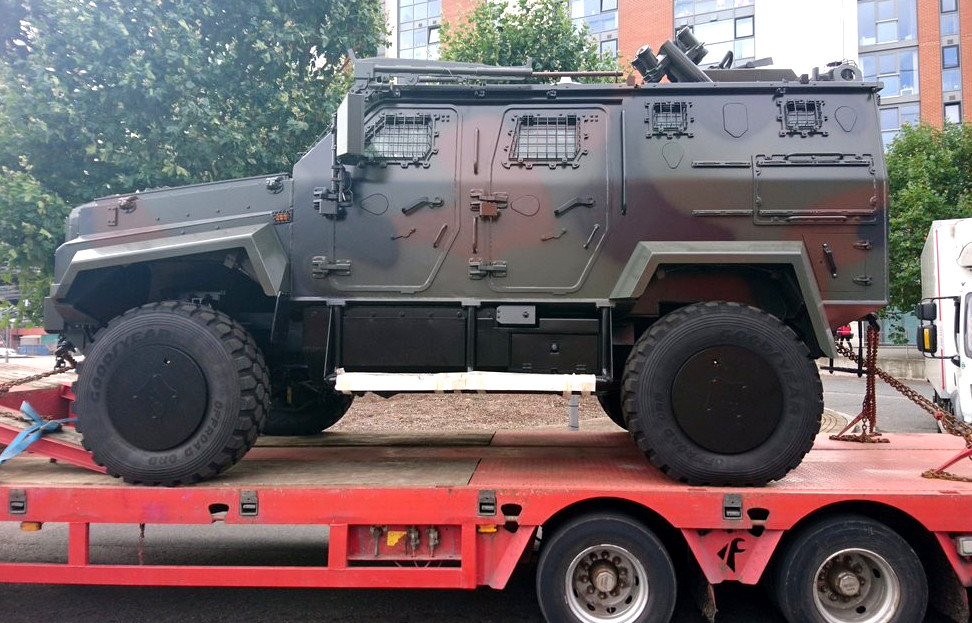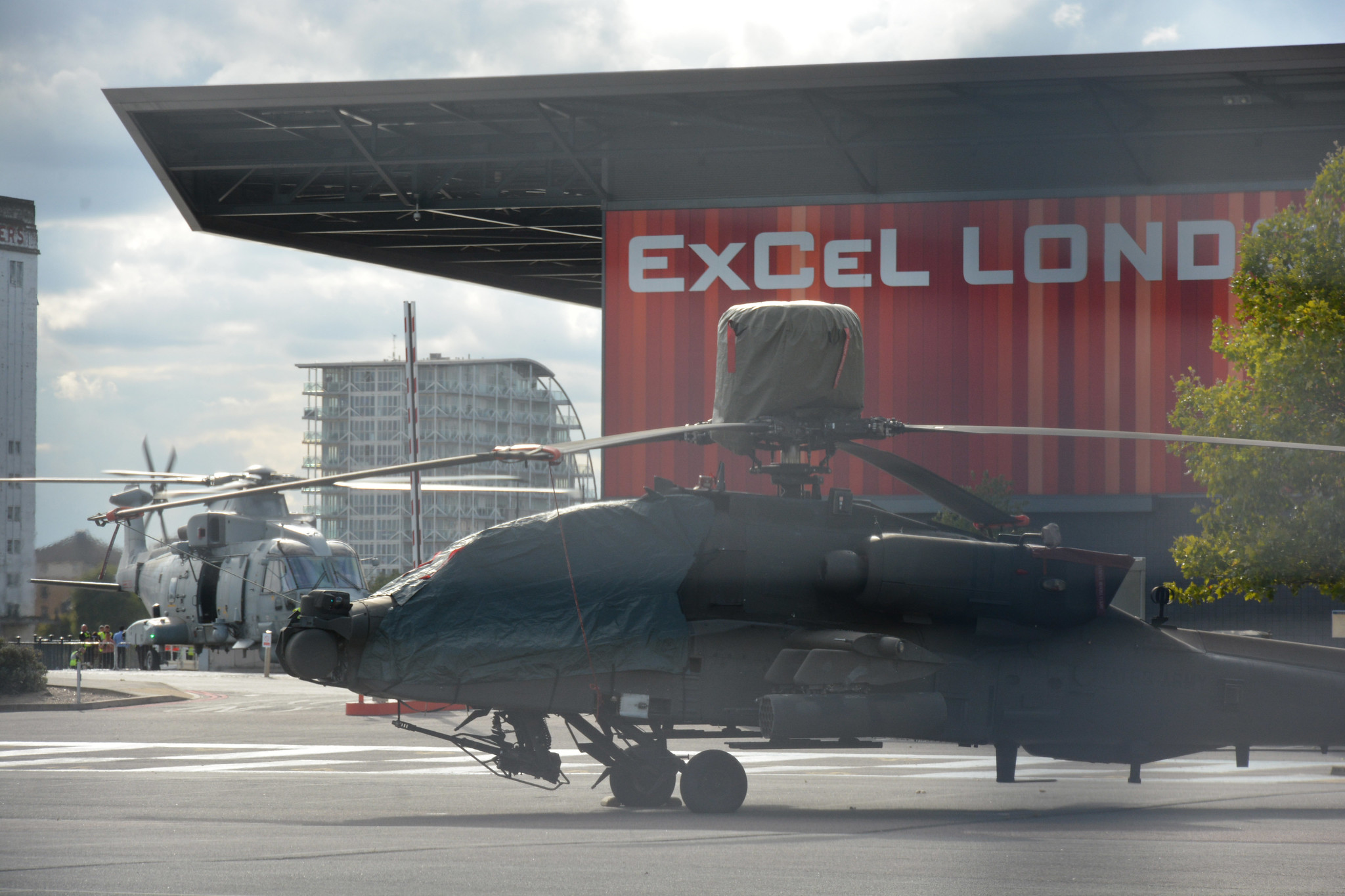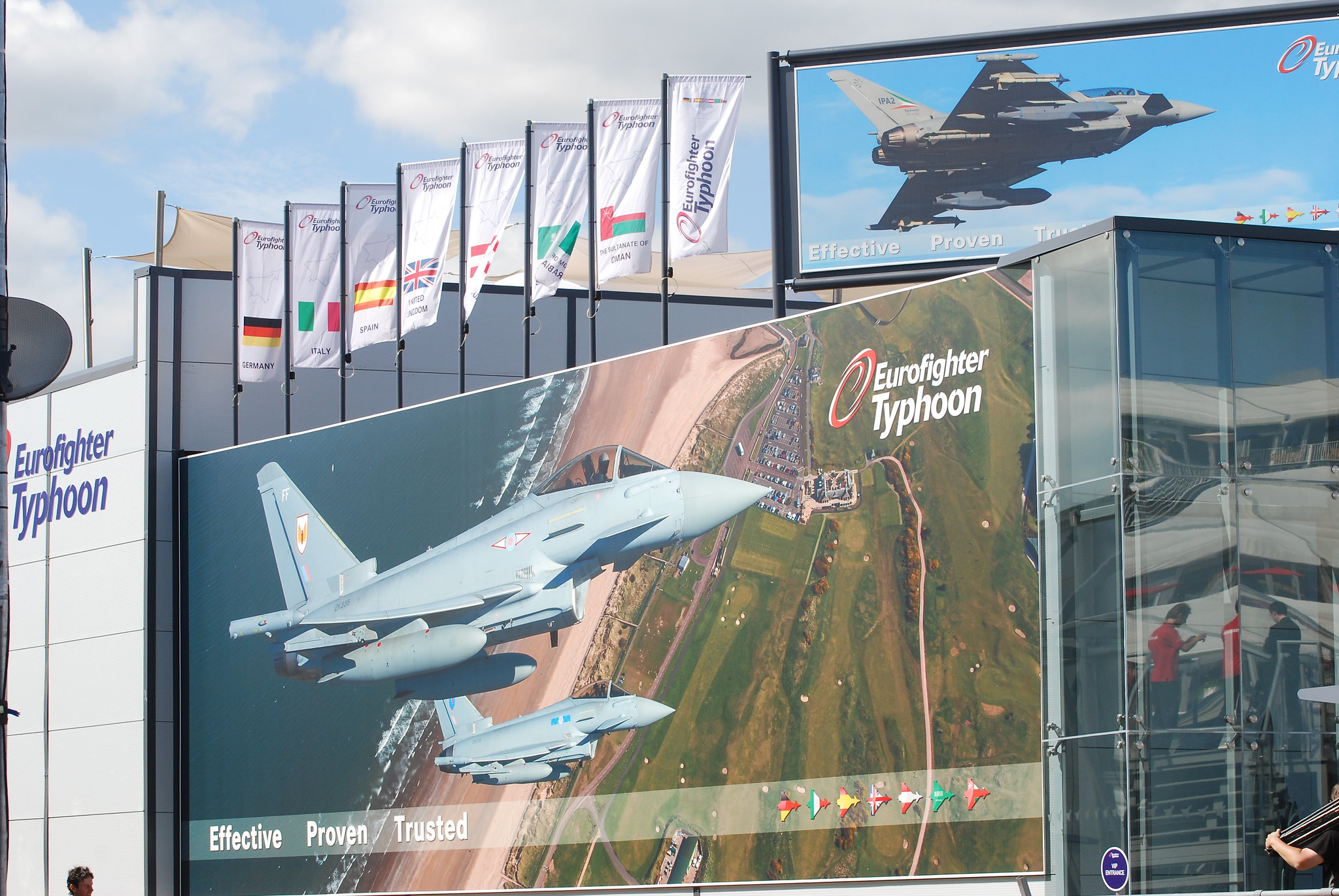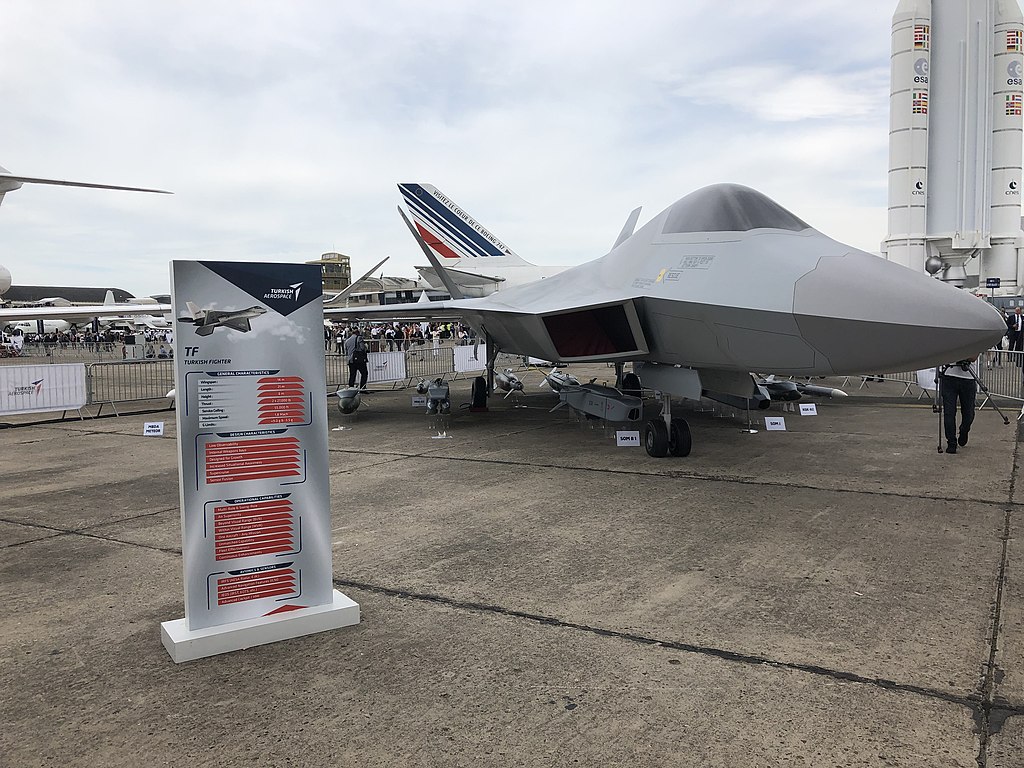The Turkish arms industry
The Turkish government regards the development of a strong domestic arms industry as a central part of its security strategy. The government pours billions of dollars each year into the industry through the Undersecretariat for the Defence Industries, and other budget funds, often with very little transparency.
The Turkish arms industry is growing rapidly, especially exports. The total export value in defence and aerospace for 2024 was $7.15 billion. 2025 promises to be a record breaking year for the Turkish arms export industry, with defence and aerospace exports reaching $3.6 billion in the first half of 2025, marking a 25% increase compared to the same period last year. In years past, total military and aerospace exports have increased from $853 million in 2010 to $4.4 billion in 2022 – a five-fold increase.
Three Turkish companies were included in SIPRI’s list of the Top 100 arms producing and military service companies in the world for year 2023: Aselsan, a military electronics company, in 54th place with arms sales of $2.44 billion in 2023 (an increase of 12% on the previous year), Baykar, a UAV and AI producer, in 69th place with sales of $1.9 billion (an increase of 25% on the previous year), and Turkish Aerospace Industries in 78th place with $1.7 billion (an increase in 45% on the previous year).
Turkey at UK arms fairs
Turkey is regularly invited to promote its arms industry at UK arms fairs.
A delegation from Turkey was invited to the last Defence and Security Equipment International (DSEI) arms fair in London in 2021, and attended as guests of the government’s arms sales unit. Turkish delegations have attended DSEI in most years, including every DSEI since 2009.
Turkey’s place at DSEI has grown significantly over the past decade. The Turkish Defence and Aerospace Industry Exporters’ Association (SSI), was the sole “International Partner” for DSEI 2015. At DSEI 2017, the Turkish pavilion was doubled in size. Turkish defense industry companies had an even stronger presence at DSEI 2023, with approximately 30 companies showcasing their research and development. For DSEI 2025, Turkey is slated to again occupy a spot on the exhibition’s international pavilion, which streamlines the connection between potential customers and Turkish companies.
Apart from DSEI, the UK government has also invited Turkish delegations to the other major defence and security exhibitions in the UK. Most recently, Turkey was invited to, and attended, the Farnborough and Security & Policing arms fairs in 2025, at the invitation of the Department for Business and Trade, and UK Defence and Security Exports, acting on behalf of the Home Office.
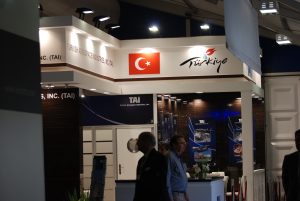
In 2023, almost 30 Turkish companies exhibited at DSEI, including:
- Aselsan (Military electronics)
- BMC
- Havelsan (electronics, software & systems)
- Nurol Holding (armoured vehicles, including its FNSS venture held jointly with BAE Systems until October 2024)
- Roketsan (rockets and missiles)
For a developing arms industry like Turkey’s, exports are an important way of meeting the costs of design and manufacture. Events such as DSEI greatly facilitate this.
Turkey’s arms exports
According to recent figures from the Stockholm International Peace Research Institute (SIPRI), between 2020-24 Turkey was the 11th biggest exporter of weapons globally, which represented a 103% increase in exports on the previous five years.
Its biggest customers were the UAE (15% of Turkish exports), Qatar (13%), and Pakistan (11%). Both Gulf states are absolute monarchies with terrible human rights records, and UAE has been a key part of the Saudi-led coalition waging war in Yemen.
Turkish exports of major conventional weapons consist mostly of armoured vehicles, ships, aircraft (drones) and missiles. Major recent sales include over 1,000 armoured personnel carriers to Romania, and armed UAVs to Kenya, with the potential for the latter to abusively deploy them in Somalia or along the Kenyan border.
In recent years, Turkey has become a major player in the international market for armed drones, most notably with the Bayraktar TB2, developed with the assistance of UK technology for the bomb racks.
According to SIPRI, the Bayraktar has been ordered by or delivered to 28 countries worldwide up to 2024: Albania, Azerbaijan, Bangladesh, Bosnia, Burkina Faso, Croatia, Djibouti, Ethiopia, Indonesia, Kenya, Kosovo, Kuwait, Kyrgyzstan, Libya, Maldives, Mali, Morocco, Niger, Nigeria, Pakistan, Poland, Qatar, Romania, Togo, Turkmenistan, UAE, Ukraine and Uzbekistan. It has been used to lethal effect by Azerbaijan in its war with Armenia, by Ethiopia in its brutal war against the rebellious Tigray province, and in the Libyan civil war. They have also been used by Ukraine in resisting the Russian invasion. Turkish drones remain in considerable demand, with a recent sale to Saudi Arabia, and further potential new buyers including Bosnia-Herzegovina, Hungary, Latvia, Lithuania, Serbia, Slovakia, the United Kingdom, and Uruguay.
Turkey’s arms suppliers
Turkey was the 22nd biggest importer of major conventional weapons in the world during 2020-24, according to SIPRI. Turkey’s main arms suppliers during this period were Spain (34%), Italy (24%), and Germany (19%).
While the UK did not deliver any complete systems to Turkey during this period, it is an important supplier of components. In particular, the UK arms industry is a major partner in the pan-European A-400M military transport aircraft, for which Turkey is a major customer.
BAE Systems is also partnering with Turkish Aerospace Industries in Turkey’s F-100 programme for the development of a domestically-designed combat aircraft.
Germany has also recently sold 70 second-hand Leopard tanks to Turkey, and in 2011 agreed a contract for €2.2 – 2.5 billion for 6 Type-214 submarines, to be produced in Turkey based on German technology. Delivery of these was expected from 2022.

